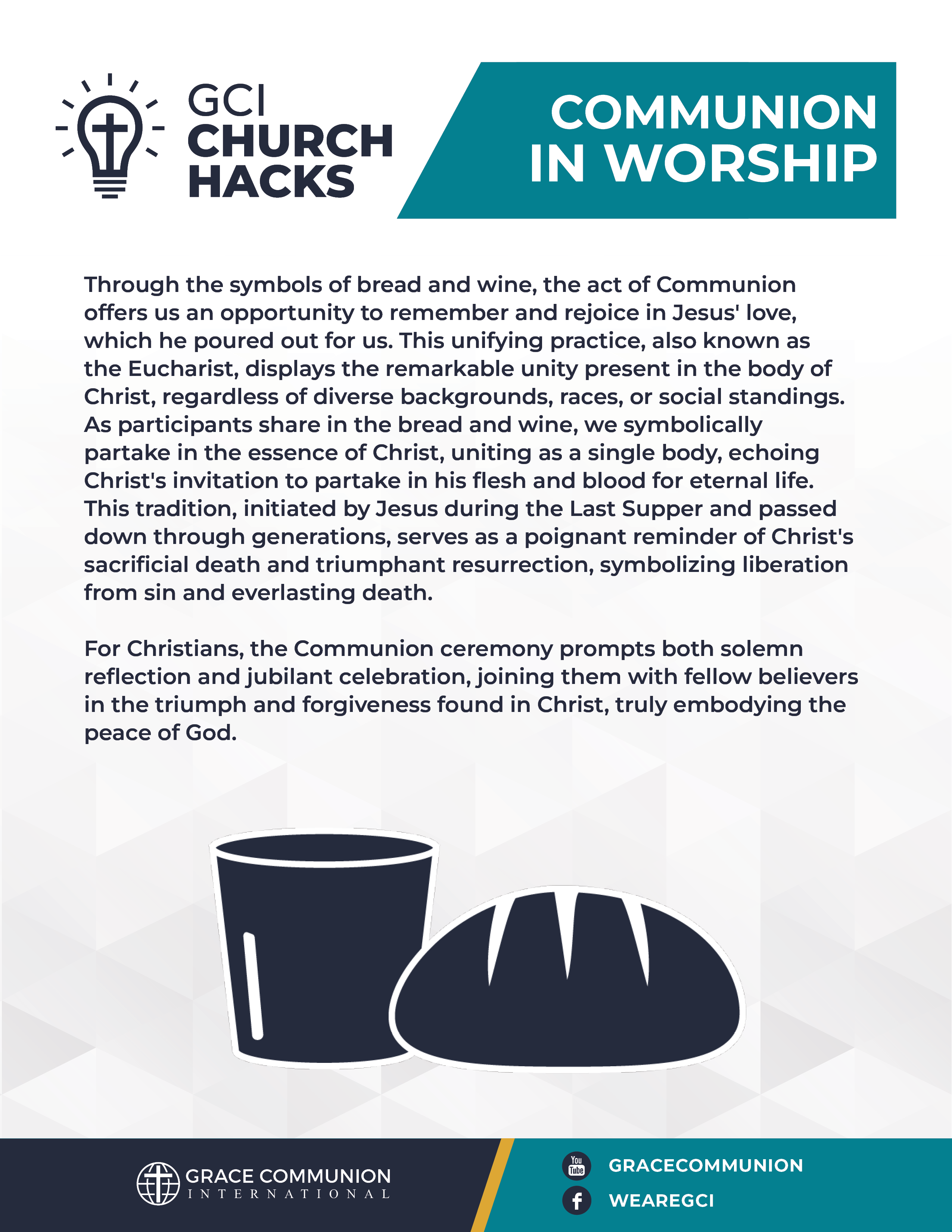Reign of Christ w/ Dr. Michael Morrison
Welcome to the Gospel Reverb podcast. Gospel Reverb is an audio gathering for preachers, teachers, and Bible thrill seekers. Each month, our host, Anthony Mullins, will interview a new guest to gain insights and preaching nuggets mined from select passages of scripture, and that month’s Revised Common Lectionary .
The podcast’s passion is to proclaim and boast in Jesus Christ, the one who reveals the heart of God, Father, Son, and Holy Spirit. And now onto the episode.
Anthony: Hello friends, and welcome to the latest episode of Gospel Reverb. Gospel Reverb is a podcast devoted to bringing you insights from Scripture found in the Revised Common Lectionary and sharing commentary from a Christ-centered and trinitarian view.
I’m your host, Anthony Mullins, and it’s my joy to welcome our guest, Dr. Michael Morrison. Mike is the president of Grace Communion Seminary, has been a writer and editor for Grace Communion International since 1983, and works on a local level as a practitioner, as the associate pastor of GCI Glendora in California. Mike earned a PhD in New Testament studies from Fuller Theological Seminary.
Mike, thank you for being with us and welcome to the podcast. And since this is your first time on Gospel Reverb, we’d love to know a bit about your story and how you’re participating with the Lord these days.
[00:01:27] Mike: Thanks, Anthony. Thanks for inviting me to be part of this podcast. I listen to it every month, and I hope that more people learn about it and learn from it.
I grew up in Sparta, a small town in southern Illinois. Our family was religious but did not go to church. We had a Bible study every week at home. I went to the University of Chicago for a couple years, and then Southern Illinois University, getting a bachelor’s degree in biology. I was studying for a graduate degree in zoology when I had some personal failures and I accepted Christ as my Savior and Lord.
That led to a career change, and I worked on the construction of a nuclear power plant in Kansas for two years, and then I went to Ambassador College to study theology. It was there that I met my wife, Janet. We were married in 1984 and we had two children, who are now married, and we have two grandchildren.
As you mentioned, I’ve been working for our denomination since 1983 as a writer and an editor. A few years after I started, the department manager told all the employees that we need to start studying for an accredited degree relevant to what our job was. At least I think that’s what he said. Nobody else seemed to hear it, or at least they didn’t do anything about it. So, I started studying at Azusa Pacific University, and with only one class at a time, it took a long time to get a Master of Divinity.
Then I was encouraged to study for a doctorate. We already had personnel who had specialized in theology, history, ministry, and Old Testament, so I chose to focus on the New Testament, and I wrote my dissertation on the book of Hebrews and finished in 2006.
Grace Communion Seminary started in 2004, and I was involved in it from the start, writing lectures on the Background of the New Testament, the four Gospels, the Epistles of Paul, and so forth. When we started to seek accreditation in 2010, I was given the title of Dean of Faculty, to coordinate the faculty and our courses. When Gary Deddo retired from being president a couple of years ago, I was asked to be the president in addition to teaching the same courses. So, I bounce back and forth from administrative work to the day-to-day work of teaching one course each semester.
How am I participating in what the Lord is doing? The seminary work is one of the ways. I am convinced that the church – any church – needs formal education to help us from going off in strange directions. As part of the Great Commission, we are supposed to teach people what Jesus taught, and we want to do our best to get it right. We will always make some mistakes along the way, but we won’t make as many if we take time to study what we’re doing, and to learn from others.
Another way that I’m participating in what the Lord is doing is in my local congregation in Glendora. I’m an associate pastor and one of the speakers. We put on a few events for the neighborhood each year, and I am part of the team that distributes fliers to all the houses in the surrounding area. I was actually doing that this morning.
Our congregation is also involved in the process of merging with another GCI church in the area, and that’s helped me think more about the purpose of the church. It’s not about survival, or self-preservation – it’s about mission. Survival wouldn’t do much good unless we also had a mission, a purpose beyond ourselves, so we need to think about what we are doing in order to be a blessing to other people.
If we merge two churches that have been declining, then the result is going to be just a continuation of the decline, unless we start doing something different. So, in a merger, our priority is not about making sure that each group feels like its own preferences are being honored. Rather, our priority is making sure that our practices will help us carry out the mission Jesus has given us. It’s not to please ourselves, but to serve others.
For example, it’s not about what kind of music we happen to like – it’s about what music is going to help other people who aren’t even here yet. We are supposed to be mature enough to handle a few things outside of what we prefer, and to think of what others might need. That’s part of what it means to be sent by a Lord and Savior who gave up his own privileges in order to serve our needs. He set an example that we should follow.
Another area of life in which I am participating with the Lord is my family. Even after 39 years of marriage, I have a lot to learn there, and it’s a ministry to serve what others need.
[00:06:28] Anthony: Knowing you and knowing your wife, Janet, she’s mentioned to me that you have a lot to learn. No, I haven’t heard that at all from her.
I’ll just tag on to what you said. You mentioned Mike that one of your primary ways of participating with the Lord is through the seminary where you serve as president and not everybody in our listening audience has heard of Grace Communion Seminary.
I want to give you an opportunity, as the president, to share why people who desire an advanced education—maybe in theology or biblical studies, maybe somebody wants to pursue a Master of Divinity—why should they consider GCS?
[00:07:06] Mike: Thanks. Thanks for that question. I do hope that the listeners desire advanced education. No doubt, some of them already have it.
One reason is that when we go to a dentist, for example, we don’t want somebody who is essentially self-taught. we want somebody who has studied the subject, and I think that the general public might reasonably want similar qualifications. for the area of spiritual health.
There are lots of seminaries out there, and most of them offer courses online, and many offer degrees that are completely online. And you can get a decent education at many of them. So why should someone want to take classes at Grace Communion Seminary rather than somewhere else?
The biggest reason, I think, is that we have the best theology. That might sound like I’m bragging, but really, if I could think of a better theology, then I’d try to change what we have. We want the best! (I suppose most other seminaries do as well, so you’d expect any of them to say that they have the best.) But we really do have the best.
For those who work in the GCI context, or those who like the theology they hear on this podcast, or on the You’re Included video interviews, then they would be interested in getting more theological training from this perspective, and that’s what we offer at Grace Communion Seminary.
It’s not just in the theology courses. Theology should have an effect on the way we read the Bible. It should have an effect on the way we do ministry. It should affect even the way we read about church history. So, one of our goals at Grace Communion Seminary is that we don’t just give nuts and bolts of how to do ministry, how to press the right psychological buttons to get people to do what you want them to do.
Rather, we want good theology to be the basis for everything we do, how we go about it. We want to make sure that we’re doing the right job and that we’re doing it in the right way. As we teach and interact with other people, are we doing it with the love of Jesus? Are we modeling for others the way he’d want it done?
So even our ministry courses have a theological foundation, and that’s one reason people should consider enrolling at Grace Communion Seminary. And last, maybe this isn’t a very good reason, but it does affect some people: we are one of the least expensive accredited seminaries around. We need to charge some tuition so we can stay in business, but we try to be administratively efficient, so that the cost doesn’t exclude all the people who need it.
So, Anthony, thanks for giving me the opportunity to let more people know about what we offer.
[00:09:58] Anthony: Yeah, absolutely. And I was able to take advantage of the education at GCS and earned a master’s degree there recently.
And for people that are interested, I would highly recommend the seminary. And even though it might be secondary, it is cost effective. And for some of us that really matters. But if you’re interested and want to know more information visit their website www.gcs.edu.
All right, let’s move on to the lectionary passages. That’s why we’re here today. We’re going to be looking at four pericopes.
1 Thessalonians 2:9-13 “You Are Witnesses”
1 Thessalonians 4:13-18 “Resurrection Reality”
1 Thessalonians 5:1-11 “Hope in Jesus”
Matthew 25:31-46 “Reign of Christ”
Our first pericope of the month is 1 Thessalonians 2:9-13. I’ll be reading from the New Revised Standard Version, the updated edition, which is the Revised Common Lectionary passage for Proper 26 in Ordinary Time, which falls on November 5.
9 You remember our labor and toil, brothers and sisters; we worked night and day so that we might not burden any of you while we proclaimed to you the gospel of God. 10 You are witnesses, and God also, how pure, upright, and blameless our conduct was toward you believers. 11 As you know, we dealt with each one of you like a father with his children, 12 urging and encouraging you and pleading that you lead a life worthy of God, who calls you into his own kingdom and glory.
13 We also constantly give thanks to God for this, that when you received the word of God that you heard from us you accepted it not as a human word but as what it really is, God’s word, which is also at work in you believers.
Now, Mike, if you were exegeting this passage to prepare for a sermon, what would be the focus of this, from this pericope in your proclamation?
[00:12:19] Mike: The word exegesis means to draw something out. We want to get something out of the passage rather than reading our own ideas into it. Now, on any passage, there are a couple of basic questions we can start with.
First, what is the author trying to say? What’s the main point? And second, why is he saying it? How does he want the readers to respond to what he writes? In this passage, Paul is writing about himself, and the people who were traveling with him. He says, We worked night and day. Why is he saying that?
He says they had good behavior. What’s the point of saying that? Why is he reminding the people in Thessalonica of something that they already know?
That’s part of the pattern in the chapter. Verse 1 starts out, You yourselves know. Verse 2 includes the phrase, As we know. Verse 5 says, As you know. Verse 9 says, You remember. Verse 10, You are witnesses. Verse 11, As you know. And then, verse 13 reminds them of what they did, and of course they know that as well. He is rehearsing this history with the people.
Why?
We get a clue in verse 12, where he reminds them of what he was teaching them. He was “urging and encouraging you and pleading that you lead a life worthy of God.”
That’s part of his earlier message to them, and he thinks it’s worth repeating. That’s why he reminds them of the example he set in labor and toil, working night and day. We read later in the epistle that some of the people in Thessalonica are not working, and here Paul is helping reinforce what he will tell them later.
So, it seems that Paul wants the readers to live in a way that God wants. We can see some confirmation of that if we keep reading in the letter. In chapter 3, he says more about the relationship between Paul and the people in Thessalonica, and then in chapter 4, he makes his point. “We ask and urge you in the Lord Jesus that, as you learn from us how you ought to live and to please God … you should do so more and more.”
He wants them to have good behavior and he’s pointing them to his own behavior as an example: You learn from us how you ought to live. So that verse in chapter 4 confirms that we’re on the right track when we see that behavior is the main purpose of the passage in chapter 2. His concern is the way they’re living.
He wants them to be a good example to others, just as he was to them. So, the main point is that believers should live a life worthy of God.
Ah, wow. What does that mean? To live a life worthy of God? Isn’t that a rather tall order? Yes, it is. But we should note that Paul is not saying that we can earn our salvation by living a good life.
He is not saying we have to be perfect. We can’t. We will fall short. But that doesn’t mean that we don’t try. Being saved by grace through faith does not mean that God doesn’t care about the way we live. It doesn’t mean that he wants to leave us in a life of sin.
It’s a matter of living up to who we really are. God says he made us in his own image. We are his children, and we are supposed to live like he does. And that can be summarized in the one word, love. Humans are broken, and we don’t always know what love really is, so God tells us what it looks like. For example, it looks like being truthful with one another, being respectful, being faithful.
One reason that salvation is a good thing is that people will have good behavior. If people are just looking out for themselves and are willing to hurt other people in order to get their own way, then eternal life won’t be very enjoyable, at least for people on the bottom. Eternal life will be good for everybody, only if it is characterized by humility, service, and love for others.
We don’t want everybody deciding for themselves how to live, and what’s good and what’s bad. We want everyone to trust that God is giving us the best possible instructions for how to live.
And the best part of eternal life is that it will be with God. He actually wants to live with us, but that won’t be much fun for us unless we also want to live in the way that he does, in the way of love and kindness. And if we really want that in the future, then we will want to live that way now as well. If it’s good then, it’s good now.
[00:17:22] Anthony: Yeah, and thanks be to God that it’s not just the instruction, but the indwelling of the Holy Spirit, that God gives himself to empower us to live the life he is calling us to live—a life, as you said, worthy of God.
And one of the ways that we live this life worthy of God, especially those who are called to teach others, is to point to Jesus. Like John the Baptist did in John 1, “There he is the lamb of god who takes away the sins of the world.”
And in this passage Paul states his words weren’t human, but God’s word. My question for you, Mike, is how do pastors, preachers, teachers safeguard themselves from preaching their own word instead of God’s word?
[00:18:07] Mike: All right. Yeah, Paul tells us that in verse 13. Some translations start a new paragraph at verse 13, but the Revised Common Lectionary includes it here as part of the same passage. Its function in this context is that it is a subtle reminder that Paul is writing with God’s authority. Just as the people received God Paul’s teaching as God’s word back then, so he wants them to receive his letter in the same way. He’s calling them to be attentive and responsive.
Your question reminds me, or this verse reminds me of what 1 Peter 4:11 says, that “whoever speaks must do so as one speaking the very words of God.” I’m not sure that we ever do that 100 percent right. I would not want to say that my sermons should be canonized and be used as the standard of right and wrong from now to the end of time. But I do hope that God can speak through me or that people will hear at least something from God in the words that I speak.
Church history and YouTube agree that preachers often speak their own words instead of what God is saying. Sometimes the speakers aren’t even trying to speak the words of God. But sometimes they are, and they don’t do a very good job of it. Your question presupposes that we want to get it right, that we want to present God’s word for the people and not just our own opinions.
One key to doing that is to stick close to the text. Don’t just use the text as a springboard to something else. It’s not just the introduction to our sermon, but it is the basis of the sermon. The sermon should re-present what the text says, and it should try to have a similar effect on the audience as the original text had.
Of course, our audiences are in such different circumstances we can never do it exactly the same, even if we do nothing but read the words of scripture exactly as they are. Because our audiences are in different circumstances, they are going to react to the words of Scripture in a way that might be different than what the original audience did.
So that’s part of the role of the preacher, to discern what the text is doing and to try to do it again for a different audience, when we as readers are in different contexts, thousands of years and thousands of miles away. So, we want to understand the original context, the historical and literary contexts.
And we want to understand our own context. Our own context will affect what we expect to find in the text, what questions we will ask, and even what things we don’t notice because we aren’t looking for them. A person who is in grief is going to notice different things than a person who is in a celebratory mood. So, we, ourselves, will notice different things in the Word of God based on our own context.
And then we also want to understand the context of the people we’re speaking to. Are they happy or sad? Are they worried about their salvation? Or are they taking it for granted? Are they puffed up with self-importance or dejected about their lack of importance? We want to give them a word from God that will meet them where they are. That’s why we need preachers and not just Bible readers.
It’s not an easy task. It requires an attitude of humility on our part and prayer that God might guide us to an appropriate message from the text for this audience at this time. A seminary course in biblical interpretation might help, a course in preaching might help, but a seminary course cannot give us humility and faith, and it cannot tell us what our audience happens to be thinking at this particular moment in the flow of time.
So that still leaves us with the question you ask, and perhaps that’s what each of us should ask when we are preparing to speak: am I being honest to what the text is trying to say, or am I using the text as an excuse to cover one of my own pet peeves or one of my favorite topics? That’s actually one of the advantages of using the Revised Common Lectionary. We don’t just choose our own passages according to the topics we happen to like but we submit to the text that is given to us that week.
The devil can quote scripture. But he will do so in a way that promotes selfishness, self-reliance, self-determination. Does our sermon promote our own ideas? Or does it respect what God has said? Are we pointing people to the Father, Son, and Spirit? And in this passage here in 1 Thessalonians, are we encouraging them to live a life that is appropriate to the way that God wants us to be?
[00:23:09] Anthony: Thinking about respecting the text—the word that God has given us, that’s been canonized for us—it’s one of the reasons I encourage preachers and teachers to read the scripture, in a scripture reading, like it’s the most important word that’s going to be stated instead of our commentary about the scripture, which can be really helpful, of course. But the word stands the test of time. So read it in such a way that is of utter importance, and I think that will keep us safeguarded.
One of the prayers that I pray in preparation for preaching is that I would speak the truth revealed in Jesus Christ. And if I do, rub that in deeply, Holy Spirit, into our hearts. But if I say anything that is less than reflective of what’s real and what’s true, may it be forgotten quickly like water off a duck’s back and just gone. That’s my ongoing prayer so that I as a gospel proclaimer can focus on the gospel himself, Jesus Christ, as it’s revealed in Scripture.
So that’s really helpful, Mike.
Let’s move on to the second pericope that we have for this month from the lectionary. It’s 1 Thessalonians 4:13-18. It is a Revised Common Lectionary passage for Proper 27 and Ordinary Time, which is on November the 12. Mike, would you read it for us, please?
[00:24:35] Mike: Sure.
But we do not want you to be uninformed, brothers and sisters, about those who have died, so that you may not grieve as others do who have no hope. 14 For since we believe that Jesus died and rose again, even so, through Jesus, God will bring with him those who have died. 15 For this we declare to you by the word of the Lord, that we who are alive, who are left until the coming of the Lord, will by no means precede those who have died. 16 For the Lord himself, with a cry of command, with the archangel’s call and with the sound of God’s trumpet, will descend from heaven, and the dead in Christ will rise first. 17 Then we who are alive, who are left, will be caught up in the clouds together with them to meet the Lord in the air, and so we will be with the Lord forever. 18 Therefore encourage one another with these words.
[00:25:39] Anthony: Verse 13 says, “so that you may not grieve as others do, who have no hope.” For me, it’s just such a paradox to grieve and yet to do so in hope. And I’ve heard it said that lament gives voice to what hurts while hope gives voice to what heals.
How is this even possible that we can grieve, but do so in hope? What is the apostle leading us to?
[00:26:02] Mike: The passage is about death, and it’s about resurrection and eternal life with the Lord. The Bible tells us that death is an enemy. But it is an enemy that Jesus Christ defeated on our behalf, and we will share in that victory when we rise to meet him in the air. But even though death has been defeated, it still happens, and it is still an enemy. It takes loved ones away and that hurts. It breaks relationships and that hurts.
It is reasonable for people to mourn the loss of something good. It is reasonable to mourn the breaking of something that God created to be good, to break the relationships that are actually supposed to be reflections of the relationships that the Father, Son, and Spirit have always had, the relationships that they want us to share in.
It’s appropriate to grieve these things. Even when we know that the loss is not permanent. We have hope, or the better word is faith, that these good things will be restored through the work of our Savior, Jesus Christ.
We live in a time between the first and second coming of Christ. The last days have begun, but they have not yet been brought to completion. There are lots of things in this world that aren’t going the way they’re supposed to. And there are lots of things to grieve, not just death, and for all of them, we have hope in Jesus Christ. Everything will be set right.
We do not need to despair, no matter whether we are concerned about the death of a loved one, or the destruction of the environment, or politics, or the economy, or the threat of war. We can grieve that such things may happen, lament, but we also know that this is not the end of the story. The story does have a happy ending, and it comes at the hand of someone who was crucified and killed for our salvation. He lives again, and he will cause us to live again, too, in a much better world. We have sorrow, yes, but we also have confidence in Christ.
We see that many of the world’s problems have selfishness at their root, and we see that the only path toward world peace is that people will consider others as more important than themselves. And we see that the one person who actually lived that way consistently was killed for it and yet raised back to life. And it’s the person who’s been there and done that, who also promises to do it again.
He will return and make it right, and we can have confidence in that.
[00:28:56] Anthony: Amen and amen. The scripture exhorts us to encourage one another with the words found in the pericope, but maybe a better way of saying that, to encourage one another with the reality that’s being revealed in this passage. And you’ve already done so, Mike. But is there anything else? Any meat left on the bone, so to speak, of ways you can encourage our audience based on what you find here?
[00:29:19] Mike: Yeah, good wins in the end. Yeah. What could be better than that?
Yes, there is something better than that. It is mentioned in the text. We will be with the Lord forever. The more we realize how good God is, how much Jesus loves us, the more we will rejoice that we will be with him.
We can rest in complete safety, security, comfort—everything we need. That’s the good life, not just in physical circumstances, but in the relationships that we’ll have. There’ll be no more death, no more disruptions, no more doubts, no more disappointments.
Karl Barth said that God does not want to be God without us. He chooses to be with us. He wants to live with us, and that is incredibly astonishing, if we know what we’re really like. Why would God want to live with feeble, infallible creatures, such as ourselves? Just to know that he is the Creator, and he has created beings like ourselves to be his eternal companions—that’s just astounding. We are eagerly desired. We are the love of his life, the apple of his eye, the pearl of great price for which he sold everything he had so he can have us too.
When we know that we are loved that much, we will eagerly look forward to his coming. We will know that all our sacrifices are not in vain. We will know that the sufferings are not worth being compared with the good things that God will give us in Christ. The one who did not spare his own son, will he not give us all good things that we will ever need? Will he not share his Spirit with us without limits? Will we not be loved without end?
Nothing can separate us from his love. That’s what I see especially encouraging in this text: “we will be with the Lord forever.”
[00:31:31] Anthony: I can remember several years ago, Mike, reading a book from Skye Jethani called With. And it really did flip the script in my own mind about my perspective of what I do in partnership with God.
Because often we think about doing things for God, which we do. But I had this mindset that I was a servant for the lord, which I am, but it’s not just that. I’m his friend, and the Lord wants to be with me. And it’s like you said, how is that so Lord? I know me. Who wants to be with me for eternity? And yet that tells us more about a God who chooses rather than our chosen-ness.
He’s a choosing God who loves to be with us and that was really good encouragement. Thank you for that.
Our third pericope of the month is 1 Thessalonians 5:1-11. It’s a Revised Common Lectionary passage for Proper 29 in Ordinary Time, which is November the 19.
Now concerning the times and the seasons, brothers and sisters, you do not need to have anything written to you. 2 For you yourselves know very well that the day of the Lord will come like a thief in the night. 3 When they say, “There is peace and security,” then sudden destruction will come upon them, as labor pains come upon a pregnant woman, and there will be no escape! 4 But you, brothers and sisters, are not in darkness, for that day to surprise you like a thief; 5 for you are all children of light and children of the day; we are not of the night or of darkness. 6 So, then, let us not fall asleep as others do, but let us keep awake and be sober, 7 for those who sleep sleep at night, and those who are drunk get drunk at night. 8 But since we belong to the day, let us be sober and put on the breastplate of faith and love and for a helmet the hope of salvation. 9 For God has destined us not for wrath but for obtaining salvation through our Lord Jesus Christ, 10 who died for us, so that whether we are awake or asleep we may live with him. 11 Therefore encourage one another and build up each other, as indeed you are doing.
It seems to me, Mike, that Paul is insisting that knowing the date of Christ’s coming is not the best way to prepare for his appearance. Rather he points us to being awake and sober as the way to be ready. So, help us understand. What does that mean in reality to be awake and sober?
[00:34:11] Mike: It means lay off the liquor, don’t get drunk. It means don’t ever go to sleep. Oh, wait a minute. Sleep seems to be necessary, doesn’t it? Maybe it doesn’t mean that.
It seems that Paul is using these words as metaphors, as figures of speech. And we have to figure out where the key similarity is.
There are several metaphors in the passage — the thief, the knight, labor pains, children, daylight, breastplate, helmet. Paul is using words that usually refer to physical things, but he is using them to refer to something spiritual. He is saying that the day of the Lord will come at some unexpected time, but we do not need to be caught unprepared.
If our spiritual life is right, we might be surprised at the timing of it all, but we won’t suffer any loss. The thief, metaphorically speaking, won’t be able to take anything away from us. It will be a time of rejoicing, not a time of fear.
So, what might it mean for us to be asleep? It would mean being unaware, not knowing what’s going on. For example, if we are on a long road trip and someone else is driving while we’re sleeping, and suddenly we are awakened by the screeching of brakes, a loud sound, the car shaking, the seatbelt tightens, and we think the worst. But if we had been awake and watching, then we would have known it was just a bad pothole in the road.
Paul was saying we don’t need to be unaware, that we know the day of the Lord is coming. We don’t know when or exactly what’s going to happen that day, but we know it’s coming, so when it does, we’re better able to figure out what’s going on. We won’t panic. Being awake means that we know what’s going on. We can see it coming.
Now, what might it mean to be spiritually drunk? It means not thinking straight. It means slow reactions. It means lacking self-control. The book of Revelation talks about a woman who was drunk with the blood of the saints. She was intoxicated because she had such power over them. She thinks she’s going to win the war, and she’s so excited about it that she doesn’t see reality. Power is intoxicating. People get so thrilled with their own abilities that they are blind to their problems.
People can be spiritually drunk because they are so thrilled with success in one area that they don’t see where they fall short. That happens to some church leaders who are so successful in building a big church or inspiring complete loyalty from their followers that they become unaware of their weaknesses. People keep telling them how wonderful they are, and after a while they start to believe it.
But it’s not just the leaders who can become drunk. Revelation also talks about people who are drunk because of their illicit relationship with the woman. They are so focused on the temporary pleasures they are getting, that they’re unable to see where that way of life really goes. They’re getting something they want. But they don’t realize that they’re missing out on something else that they need. They are victims of bad leadership—many of us have had experience with that sort of thing, but even so they are drunk. Their thinking is distorted.
Paul wants us to be sober, to think clearly, to be aware of our weakness, to be aware of our need for the Holy Spirit to guide us, give us strength. We do not say, ah, I’ve got it all figured out, my theology is perfect, I know every detail of what is right and what is wrong.
And, on the other hand, we do not want to think that we are worthless, never getting anything right. Thinking soberly means to know that Christ is with us, the Spirit is with us. And church history shows that he uses fallible people, but because that’s the only option in this age. God knows how to use fallible people.
Now, the text gives us a couple of ways that we should be sober. We should put on the breastplate of faith and a helmet of hope. That will protect our vital parts. It will protect our thoughts and emotions. We will not put our hope in the wrong things. We won’t put our faith in the wrong things. We’ll let the Word of God inform us of where our faith and hope need to be.
Sobriety means knowing that we are children of God. And our identity in him is a word of exhortation to do right, as well as a word of comfort when we fail. And I might add, it’s hard to get the right balance when we are drunk, when we are filled with the wrong kind of spirits.
[00:39:21] Anthony: And put the exclamation point on it right there, Mike. I hear you loud and clear.
It says in verse 9 that God has not destined us for wrath, but salvation through our Lord. And that seems to me to be rather good news, don’t you think? Tell us more about it.
[00:39:42] Mike: Anthony, yeah, that is good news. And salvation is much more than an escape from punishment. The word “salvation” originally meant a rescue from something. People can be saved from an illness, or saved from a shipwreck, and they are restored to the way they were before.
But in the New Testament, the word came to involve much more than a rescue from some physical problem. It came to mean a rescue from spiritual dangers, including sin and death, and feeling alienated from God. And the result is much more than what we had before. Even looking at the history of humanity as a whole, what we get with Christ is much better than what the first humans had before sin entered the picture. The first humans were capable of sinning and dying. But after the resurrection, we will not be capable of either one.
Maybe we might be capable of sinning if we wanted to, but the real point of salvation is that we won’t ever want to sin. We are rescued from the desire to sin, and that, in itself, is very good news. It’s one of the astonishing things about the salvation we are given in Christ.
We struggle with sin throughout life. Some say we sin every day of our lives, and then in the resurrection, in the blink of an eye, at the snap of a finger, we won’t ever sin again. It’s like a cacophony of powerful noise suddenly comes to a stop. And there is silence.
Actually, there’s not silence, there is beautiful music instead. We don’t just come to a point of inactivity, of breathless awe at the majesty and wonder of God. There may be some of that, but there may be praise as well. Maybe faint at first, but soon rising to this triumphant song that will make the Hallelujah chorus seem to be a weak imitation.
I’m speaking in metaphors here because I really don’t have the language to describe the joys and beauties of a spiritual life. And the Bible says that the love of God is beyond our ability to understand. His joy is beyond our ability to put into words. And his peace is beyond our comprehension.
Paul writes that God didn’t plan for us to experience wrath. He plans for us to experience salvation. Paul doesn’t say much about what’s involved in that wrath, but he points us instead to the better outcome. We need to be concerned, not just with what we’re saved from, but also what we’re saved for. And we can talk about the benefits of salvation in this life, as well as in the next. In this life, we’re given love, joy, peace, faith, meekness, kindness, gentleness, and goodness.
But when push comes to shove, as it does for many Christians in other nations, who are persecuted for their belief in Christ, then we have to focus on the benefits in the next life. We want a faith that is willing to accept hardship in this life, or even a painful death, if that’s the cost of being loyal to the Messiah who suffered and died for us. What kind of person are we if we are willing to betray the one who loves us most just in exchange for a few sad years in a horribly corrupt world?
You asked for good news. That may not seem like good news, but it is part of the gospel that Jesus preached and the gospel that Paul preached and the gospel that both of them lived. The good news of the gospel is made more evident. When we compare it with the ungodly things being done around us. This is all the more reason we need to look beyond this life, beyond the blessings we might have in this life, and look to the future life with Christ, which is far better.
Paul says in Romans, sufferings of this life are not worth to be compared with the glories of the future life. That’s true of our blessings too. They are just trinkets in comparison to the spiritual riches that we will enjoy. And quality and in quantity, the good times will never end. It’s a billion trillion quadrillion years of blessings. We can’t even begin to measure. It’s good, good, good, nothing but good!
And the best part is that we’ll be with Father, Son, and Spirit. He wants to be with us. A love that we can only begin to imagine will be with us. As Paul says, if we’re thinking clearly, then we’ll put faith and love on our heart, hope on our head, and encourage one another as indeed you are already doing.
[00:44:37] Anthony: Hallelujah. From glory to glory. Talking about wrath, it’s not a subject that people often want to hear in their worship gatherings on Sunday, but it’s an important part of the gospel story. And I recall this from George Hunsinger—and I think I pulled this from one of his lectures—but he said, “The wrath of God is a very important part of the gospel, but it’s not split off from his love. It’s the form that God’s love takes. It’s the wrath of God’s love when God’s love is resisted, and God’s wrath overcomes all forms of resistance. This is what God is doing in Jesus Christ.”
Hallelujah. Praise him.
Our final pericope of the month is Matthew 25:31-46. It is a Revised Common Lectionary passage for the reign of Christ Sunday on November 26.
Mike, do us the honors, please.
[00:45:33] Mike:
“When the Son of Man comes in his glory and all the angels with him, then he will sit on the throne of his glory. 32 All the nations will be gathered before him, and he will separate people one from another as a shepherd separates the sheep from the goats, 33 and he will put the sheep at his right hand and the goats at the left. 34 Then the king will say to those at his right hand, ‘Come, you who are blessed by my Father, inherit the kingdom prepared for you from the foundation of the world, 35 for I was hungry and you gave me food, I was thirsty and you gave me something to drink, I was a stranger and you welcomed me, 36 I was naked and you gave me clothing, I was sick and you took care of me, I was in prison and you visited me.’ 37 Then the righteous will answer him, ‘Lord, when was it that we saw you hungry and gave you food or thirsty and gave you something to drink? 38 And when was it that we saw you a stranger and welcomed you or naked and gave you clothing? 39 And when was it that we saw you sick or in prison and visited you?’ 40 And the king will answer them, ‘Truly I tell you, just as you did it to one of the least of these brothers and sisters of mine, you did it to me.’ 41 Then he will say to those at his left hand, ‘You who are accursed, depart from me into the eternal fire prepared for the devil and his angels, 42 for I was hungry and you gave me no food, I was thirsty and you gave me nothing to drink, 43 I was a stranger and you did not welcome me, naked and you did not give me clothing, sick and in prison and you did not visit me.’ 44 Then they also will answer, ‘Lord, when was it that we saw you hungry or thirsty or a stranger or naked or sick or in prison and did not take care of you?’ 45 Then he will answer them, ‘Truly I tell you, just as you did not do it to one of the least of these, you did not do it to me.’ 46 And these will go away into eternal punishment but the righteous into eternal life.”
[00:47:46] Anthony: Okay. There’s a lot to unpack here, Mike, and this is a Reign of Christ Sunday. Some call it Christ the King Sunday.
And let’s start there. People often raise arguments about the sheep and the goats and eternal punishment, and we’ll get to that soon enough, but the passage starts with the Son of Man on his rightful throne as the king of his kingdom. How does that reality shape the rest of the passage?
[00:48:13] Mike: Perhaps the most important aspect of this is that the Son of Man is not only the king, but he’s also the judge. In our democracies, we’re used to a separation of powers that the judiciary has some independence from the executive power, and generally the highest court in the land is actually a committee to prevent any one person there from having too much power. But the ancient world was ruled by what we today might call dictators.
They had power over all branches of the government, and it was just assumed that a king was also a judge. Although he would delegate smaller decisions to his subordinates, he had the ultimate authority to make all judicial decisions, whether it was to sentence people to death, to free them, to fine them, to give them victory in a civil case over their neighbor.
When people in the first century heard the word “king,” they would understand that kind of power went along with it. Now here, the Son of Man is the king. It’s Jesus, the representative of all humanity. We call him Lord, as well as Savior, because he has the authority to tell us what to do. But that authority is always used with perfect wisdom, perfect compassion, and perfect love. We worship him not just because he has overwhelming power, but because he is overwhelmingly good.
Now the passage starts off like a simple prediction—here’s what’s going to happen. But it quickly turns into a parable about sheep and goats. A parable is the best way to describe what’s going to happen. When Jesus returns in authority, what will it be like? How will he judge his people? What criteria will he use? It’s going to be like this.
One thing that caught my attention on this reading was the phrase “inherit the kingdom.” People in the first century knew what that phrase meant. Today, we might say, if you inherit a mansion, it’s not just that you can live there for a while. No, it means that you own it. And similarly, in the ancient world, if you inherit a kingdom, it’s yours.
When King Herod died, for example, his will said that his sons were to inherit his kingdom. The Roman government had the final say on that, but the idea of inheriting a kingdom was part of the way the ancient world operated. The king’s son would inherit his kingdom, or sometimes they’d split the kingdom so that more than one of his children could inherit a kingdom.
So, when the Son of Man tells people to inherit the kingdom prepared for you from the foundation of the world, It’s not just a matter of living in God’s kingdom, it’s also a matter of having our own kingdom, part of God’s empire, we might call it.
In a different parable, Jesus talked about ruling five cities or ten cities. He is talking about a significant reward and a significant responsibility. Now, that may be a metaphor that Jesus is using examples from his own day of a fabulously extravagant reward. If Jesus were making a parable for modern times, he might talk about inheriting some multinational corporation, maybe the Walmart empire, or controlling stock in Microsoft.
The point is that it’s an exceedingly large inheritance, a reward far out of proportion to what ordinary people imagine is possible. As king of all kings and as judge, he can be extravagantly generous with people.
[00:51:59] Anthony: Mike, how do you hermeneutically preach about the sheep and goats in verse 32 and eternal punishment that we read about in verse 46?
What say you?
[00:52:10] Mike: It goes back to the two questions I mentioned earlier. What’s the main point? And how did the author want the readers to respond? Is there something in there that we need to learn? Or is it telling us about something we need to do? Knowing and doing can rarely be completely separated, but there is often an emphasis on one or the other.
For example, a passage might tell us that God is great and good, completely trustworthy. That’s something to know. And we might respond to that knowledge with worship, faith, and trust. The knowledge and action are connected, but I’d say that the emphasis is on the knowledge. God isn’t interested in fake worship, in us going through the motions, even when we don’t believe it. The emphasis, in this case, would seem to be on what we know and believe.
A different example is the Great Commission: Go into all the world, make disciples, baptize, and teach. That’s something to know, yes, but the emphasis is on that we ought to be doing something.
Here in Matthew 25, where is the emphasis? I don’t think it’s in knowing the typical habits of sheep or goats. They provide the setting for the introduction of the parable, but there is no further development of that particular detail. And similarly, there is no further development of the angels who come with Christ at his return.
What about the difference between right and left? In the ancient world, is good and left is bad, and the parable uses that as part of its setting, but it’s not developing that in either way. It’s not telling us that our left hands are bad or anything like that. It’s just part of the framework of the story.
The main part of the story, the part that seems to be emphasized, in this case by repetition, is found in the idea, I was in need and, you either helped me or you didn’t help me. In the story, the people ask, when did we see you in need? When did we help or not help?
Now, this is not some script that we all have to act out on the day of judgment. After all, if we know we are supposed to ask that question, then we also know what the answer is. And it’s just play acting. It’s pretending. The story includes this dialogue mainly as an opportunity to repeat the words, to give emphasis to the key concept: I was in need, and some people helped me, and others didn’t.
The point of the story is that we need to be helping the hungry, helping the thirsty, helping the stranger, helping people who need clothes, who are sick, who are in prison. That’s something that Jesus will be judging on. Perhaps I should say he’s already judging us on. That’s something that he cares about.
It’s only one of many things that he cares about. The parable doesn’t intend to list all the points of judgment. It’s just making one point, one illustration. It’s not an encyclopedia of ethics or faith or worship.
Life is much more complex than a simple story can picture. But the illustration here does tell us something that Jesus wants his people to be doing, and that is helping others even without any motive of reward.
Some people might want to make another point out of the story that Jesus is actually in all these needy people. In one sense that’s true, but that actually weakens the point of the parable. The point is not that we should help people because we know that Jesus is in them. Or rather, it’s that we should help people even when we do not know that Jesus is in them. That gets repeated in the parable, and we shouldn’t try to undermine that part of it.
I’ve already commented about the reward mentioned in the parable and that we’ll inherit a kingdom. As a side point, it’s interesting to note that this kingdom has been prepared for us from the very beginning. It’s been part of God’s plan all along. It’s even tied into one of the first things that we learn in the Bible, that humans are made in the image of God, and we’re supposed to rule over other aspects of his creation. God wants to give us authority, but not until we can be trusted with that authority, not until we’re going to rule in the good way that God would.
You specifically asked about the penalty part of the parable. The people who were sorted out on the left will go into eternal fire and eternal punishment. What’s that about?
What should you do if you’re preaching this passage? It goes back to our initial questions: What’s the main point, and what’s our response? The main point is that we should be helping people who need help, even if we don’t see Jesus in them. Where does eternal fire fit into that picture? It doesn’t, really. It was not the main point.
Jesus did not tell this parable so his disciples would know more about the details of the end time day of judgment. We are not to expect massive herds of people being moved around on the terrain of the new world. He did not tell a parable so that we’d know more about what the future reward will be like.
It’s good, yes, but we really don’t know many details. That wasn’t the main point. And in the same way, the punishment for not doing this wasn’t his main point either. It’s just part of the framework of the parable.
In the parable of Lazarus and the rich man, Jesus talked about a conversation between the rich man and Hades, and the poor man and Abraham’s bosom. Jesus is not trying to teach us that such conversations will occur, or even if they’re possible. Instead, Jesus is using a common belief of the day as part of the scenery of the parable, without attempting to either endorse or refute the common belief.
Similarly, in another parable, a man who owed a debt was thrown into prison to be tortured until he could pay. But the purpose of the parable is not to tell us about the nature of the end time punishment. That’s simply part of the framework of the parable using imagery that was borrowed from the customs and beliefs of his time period.
In some places, Jesus talks as if the end time punishment is fire. In other places, it’s outer darkness. It’s difficult to put all these together into a sensible picture for the simple reason, I think, that they are not supposed to be put together into a sensible picture. Jesus is just using ideas that circulated in his culture and he is not endorsing them or trying to set them straight. He never attempts to settle our curiosity about what the details will be like.
But I think it’s fair to generalize the overall picture by saying that if we make certain choices in life contrary to what Jesus wants, then we are going to regret it. Jesus says we should make every effort to avoid that.
If we are preaching this passage, what should we do with it? Just read it and move on.
It’s not what the parable is really about. Jesus saw no need to elaborate on it. And we don’t need to either. Jesus saw no need to refute the idea or clarify it, so we don’t have to either. So, I recommend that we ignore it.
Now, if we are writing a commentary or conducting a series of Bible studies about the parables of Jesus, then we ought to deal with it in an excursus or as a side point. If we are presenting a class about the future, then we should deal with it. But in a sermon, it’s just too much of a can of worms to deal with it well. The sermon gets dominated by a side point. And the main point is pushed to the side.
It reminds me of a class I took a long time ago on the book of Galatians. There was a lot in the book that the teacher didn’t like. So, his class was mostly that Galatians doesn’t mean this, and it doesn’t mean that. And he never got around to telling us what it actually does mean.
That’s what’s likely to happen if we try to deal with the topic of eternal punishment when we really ought to be spending our time trying to get people to respond to the parable in a way that Jesus wanted his people to respond to the parable. We’re supposed to help the hungry, give drink to the thirsty, give clothes to the naked. And so forth.
Now, it’s also true that we should give hope to the hopeless, give the gospel to those who haven’t heard it, and teach people who don’t know very much about Jesus. Those are true, but they are not the point of this particular parable.
And if we preach those other things too much, it will come at the expense of the main point of this parable, which is about helping people with physical needs eve when we don’t know that Jesus is there. Doing good to others has simply become so much a part of us that we really aren’t keeping score.
We’re not doing this to earn future rewards, but simply because it’s a good thing to do. We love these needy people as we love ourselves.
[01:01:37] Anthony: And I think it’s helpful, Mike, in reading this passage Christologically to consider what God has already accomplished for us in Jesus Christ, that he found us thirsty and was living waters for us. He found us hungry, and he gives us himself in the cup and the bread, that he clothed us, that all good things come from above.
So in that way instead of judging others as the least of these, we realize we were the least of these, right? And God found us in Jesus Christ in the far country. Hallelujah praise him!
You know, sometimes in the past, Mike, I’ve heard this passage preached as separation, judgment, and punishment alone, and of course, you’ve already dealt with this, but in terms of closing out our commentary on this passage, what other pieces of good news can we find or glean that maybe we haven’t touched on yet?
Anything else?
[01:02:35] Mike: Is there good news in this? Does it just lay a burden on us? So, we got to do this, we got to do that. If you think that being kind to other people is an unpleasant burden, then maybe there’s no good news here for you because that’s really what we ought to do, or at least it’s one of the many things we ought to do.
But the good news here is that Jesus Christ transforms people from self-centered to other centered, from stingy to generous, from callous to caring. People do good to others without keeping score, without expecting anything in it for themselves. And when that happens, the world is a better place. That’s good news.
And as other passages in the New Testament tell us, it happens because Jesus lives in us. The Spirit lives in us, changing us from the inside out. That’s good news, even for the people who don’t believe it.
Of course, there’s also good news in the future, as the passages in 1 Thessalonians and here in Matthew point out. The good works that we do now are good, but they’re just a cup of cool water compared with the oceans of blessings that God will give us in the future. What we do now is just a child’s crayon drawing compared to the IMAX theater version that we will enjoy in the future.
[01:04:09] Anthony: IMAX. I did not expect that reference in our conversation, Mike. Thanks for that metaphor. That’s pretty vivid.
And you mentioned that as we serve others, even when we don’t know Jesus is present, he is. And it reminds me we are not a delivery service hired by Jesus to take him to our neighbors. But we are witnesses to Christ already at work in the neighborhood. So, let’s be in the neighborhood, being a blessing to others as we have been blessed ourselves.
Mike, thank you so much for being a part of this podcast. I’ve enjoyed our conversation. I’m so thankful for you and the call to ministry God has on your life.
And I want to take a moment to thank the people that make this podcast possible, Reuel Enerio and David McKinnon, our podcast producers, as well as my beloved wife, Elizabeth, who does the transcription. So, you can read every good word that Mike has spoken here today.
Mike, it is our tradition here at Gospel Reverb to end with prayer. So, if you would do the honor of praying for and with our people, I’d be so appreciative.
[01:05:11] Mike: Thanks, Anthony, for inviting me and giving me the opportunity. Let’s pray.
Father, thank you for Scripture, for things that you inspired people to write for our encouragement and instruction.
Thank you for giving us glimpses into the glory that you want to share with us, and the joy of being chosen by you for a life of never-ending joy and love in your presence. Thank you for Jesus who gave up his phenomenal riches and came to us even though he knew we would kill him. Thank you for raising us him up and for including us in his life.
Thank you for the people who make the podcast, for the people who listen because they want to be better at handling the words of God. We ask the Spirit to encourage them in what they do, in the sacrifices they make to serve others, in the joy they have in sharing good news with the people they love.
Some of our listeners are seriously ill, and yet they serve anyway. Some of them battle with depression, even as they intellectually know that the news is incredibly good. Help each of them day by day. Help us all when we are spiritually hungry, spiritually thirsty, spiritually naked, feeling sick, and all alone. We all need help, and you are the help that we need.
And thank you for the intercession of the Spirit and the Son on our behalf. Amen.
[01:06:46] Anthony: Amen.
Thank you for being a guest of Gospel Reverb. If you like what you heard, give us a high rating and review us on iTunes, Spotify, or wherever you get your podcast content. Share this episode with a friend. It really does help us get the word out as we are just getting started. Join us next month for a new show and insights from the RCL. Until then, peace be with you!



 By Tim Sitterley, US West Regional Director
By Tim Sitterley, US West Regional Director
 By Cara Garrity, Development Coordinator
By Cara Garrity, Development Coordinator By Michelle Fleming, Communications Director
By Michelle Fleming, Communications Director By Danny Zachariah, Superintendent, Asia
By Danny Zachariah, Superintendent, Asia








